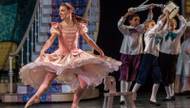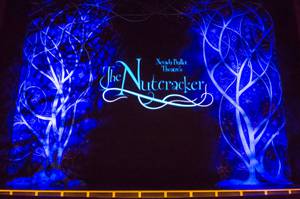
Henri Through October 26; Thursday-Sunday, 7 p.m.; Saturday & Sunday, 2 p.m., $49. Smith Center's Troesh Studio Theater, 702-749-2000.
Henri, written and directed by Nevada native Ryan Elisabeth Reid, careens through time—from the 1930s to the present—to show the life of its title character, a musician in advanced stages of dementia. It will reward your patience, and test you along the way.
Story is largely ignored in Henri. The audience is presented with moments, bubbles of time in which to get to know Henri. Strung together, these scenes don’t provide narrative coherence so much as they demonstrate key character traits. Henri moves along excruciatingly slowly at times. Its bookend scenes—Henri in a care center and a portrait of his life just before entering that facility—could practically be mute exercises in movement and character, so little do they depend on what is said.
In both, James Williams, as the elder Henri, is a master of physicality. Wheelchair-bound in the facility he still conveys a stubborn hold on his identity. Later in the play (and earlier in his chronology) his circular movement as he struggles in his apartment presents an alarmingly clear picture of confusion and determination to hold onto the touchstones of his life. Both scenes are punctuated by song, an emotional outburst made more effective for the slow, slow burn to get there. For me, at least. The night I attended, half the audience was held rapt by the struggle; the rest left as quickly as they could.
It doesn’t help that some of Stormy Budwig’s choreography is maddeningly opaque. Why is Henri’s final physical movement to mop the floor? And when the show abandons physicality for dialogue or narrative it makes some alarmingly clichéd choices. A small girl, Blip (forcibly played by Maria Reyna), guides the audience through Henri’s life. She’s the ghost of Henri’s sister who died in childhood, and to make sure you don’t miss any of the symbolism, she wears angel wings.
Still, for me, the subject matter, the superb work of the actors and the high production value ultimately saved the show. The set is spare, evocative and splashy when necessary, and in a play where music is almost its own character, Corey Crellin’s is sparkling. If nothing else, Henri makes for an interesting experience, one both rewarding and exasperating.







